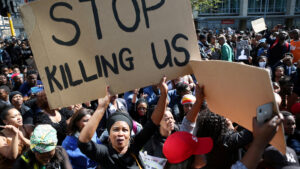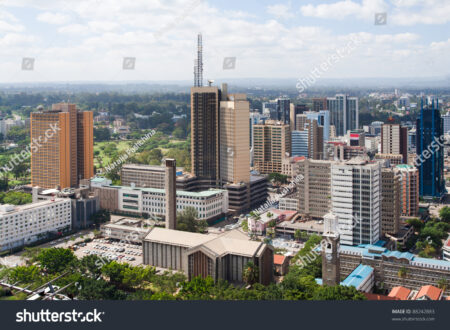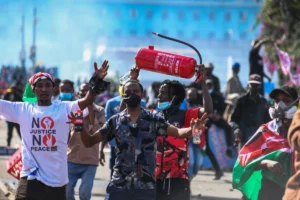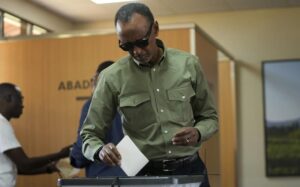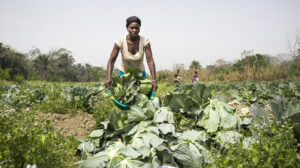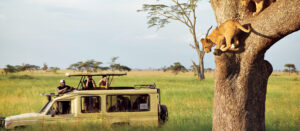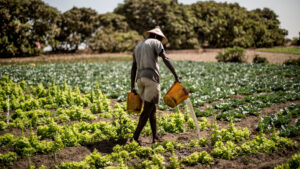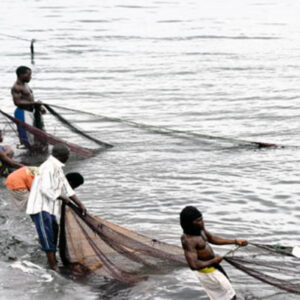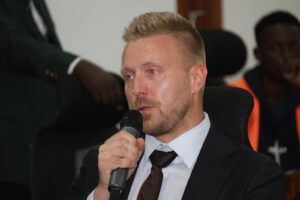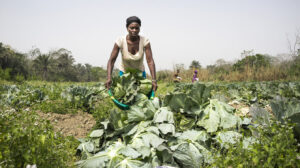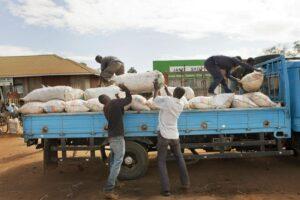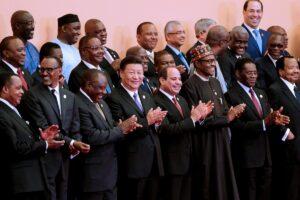- Africa’s new dawn: the rising role of digital and AI in agriculture
- Can Dangote Refinery Transform Africa Energy Ambition
- Gallup Survey: 80 per cent of Kenyan Workers Are Disengaged and Seek New Opportunities
- Madagascar Man Freed from 5KG Tumor After 15-Year Struggle
- How women in Africa are perceived and treated
- Sugar consumption in Kenya to Increase to 1.23 Million Tonnes
- Can Somalia and Turkey Oil deal Bring Change in Somaliland
- Remittances to Kenya dropped to $371.6 million in June, marking a six month low
Countries
- A majority of Kenyan workers are disengaged according to the 2024 edition of Gallup employees survey.
- The survey further shows that men are slightly more engaged than their female counterparts.
- More women (50 per cent) were stressed than men (47 per cent). The junior employees recorded higher stress levels than managers.
A new study shows that for every five employed Kenyans, four lack the drive to go above and beyond in their roles at work.
A recent global survey by Gallup says 80 per cent of Kenyan workers are “disengaged” meaning they only do the bare minimum and are only in their current job because they haven’t found a job opening elsewhere.
‘Disengaged from work’ refers to a lack of emotional or psychological connection to one’s job or workplace.
Disengaged employees typically show low levels of motivation, commitment, and enthusiasm for their work.
At 80 percent, the rate of disengagement …
- Only about 50% of women in Kenya and 52% in Uganda feel that they are treated with respect and dignity.
- In Zimbabwe, 60% of women feel that they are treated with respect and dignity. This is a sharp drop from an estimated 71% of women who reported being treated with respect in 2013.
- The percentage of people in South Africa who feel this way was even worse at 27% among men and 28% among women.
In Africa’s most advanced economy South Africa, the percentage of people in South Africa who felt this way was even worse at 27 percent among men and 28 percent among women.
The push for equality across Africa appears far from yielding good results with a new report showing that the perceptions that women are treated with respect and dignity have dropped sharply in recent years in Kenya, Uganda South Africa, and Zimbabwe.
According to Gallup …
- Antoinette Monsio Sayeh is set to retire as Deputy Managing Director of the International Monetary Fund (IMF) on September 12, 2024.
- The IMF says her experience, deep integrity, and wise judgment have been invaluable to the global lender.
- Antoinette Sayeh oversaw several vital initiatives of operations, policies, and corporate priorities, drawing on her deep knowledge of the institution.
Liberian management icon and trailblazer Antoinette Monsio Sayeh is set to retire from the International Monetary Fund (IMF) on September 12, 2024.
In an update by the IMF Managing Director Kristalina Georgieva, Antoinette Sayeh will conclude her tour of duty in the Washington-based institution this September where she has been serving as the Deputy Managing Director since 2020.
At the helm, she served with deputy managing directors Kenji Okamura (Japan), Bo Li (China) and Gita Gopinath (US/India) who is the first managing director.
“Antoinette has been a pillar of the Fund’s leadership …
- Climate change will push 132 million people into poverty by 2030.
- CARE has set a 2030 Goal to impact 25 million poor and marginalised people, particularly women and girls.
- According to CARE, as climate change pushes millions more into poverty, strengthening the resilience of the poorest and most marginalised people, especially women and girls, while building their capacities to adapt, should be the main agenda on all policy-making avenues.
Empowering Women in Agriculture to combat climate change
Climate change will push an additional 132 million people into poverty by 2030, most of these will be women. To help address the related challenge, the rights group CARE in Tanzania has launched a women’s empowerment program to combat the effects of climate change in agriculture.
Her Resilience, Our Planet, the six-year project targets women empowerment in the Southern Agricultural Growth Corridor of Tanzania (SAGCOT) clusters.
The project adopts a comprehensive approach to …
-
- Arusha hosts major tourism agents and operators’ summit
- The government earmarks over 170 areas for accommodation facilities
- Tanzania reported tourism receipts of USD 3,368.7 million in 2023
Investments in Tanzania’s tourism sector
Tanzania’s tourism is growing, and to meet this growth, the government has announced some 179 investment sites earmarked for the construction of accommodation facilities.
Announcing the country’s tourism hub of Arusha earlier this week, Deputy Conservation Commissioner of the Ministry of Natural Resources and Tourism, Mr Iman Nkuwi, said the government is committed to attracting local and foreign investors.
- “The government has earmarked several areas for investment in the tourism industry for both local and foreign investors,” he told a host of visiting global travel agents at a high-profile Business-to-Business (B2B) event.This week, Arusha hosted a number of influential global travel and tourism agents and local tour operators. The B2B event was the brainchild of African Queen
- Sustainable Agriculture Farming Practices have been identified as the only way to ensure food security in the future
- Crop Life International launched its flagship commitment, the Sustainable Pesticide Management Framework (SPMF) program in 2021
- Kenya has made significant strides in pesticide management by integrating global best practices into its new pesticide law.
Kenya is among the nine countries in the world undertaking a $13 million (Sh1.7 billion) agriculture funding program over the next five years. The funding is aimed at supporting sustainable agriculture farming practices in the selected member states mostly targeted towards reducing harm caused by pesticides.
According to Crop Life International, Kenya is among the countries that have done well in Integrating global best practices into the new pesticide law, enhancing the national poison control center, and establishing an industry-wide pesticide container management scheme with 310 collection sites.
In its latest Annual Report for its Sustainable Pesticide …
-
- Over 4 million Tanzanians are employed in fisheries, which contribute about 1.4 per cent to the country’s Gross Domestic Product (GDP).
- Tanzania is among Africa’s top 10 fish producers.
- Tanzania will host the Africa Small Scale Fisheries (SSF) Summit.
Tanzania fisheries are an essential revenue generator for the country. According to the Ministry of Agriculture and Fisheries, the fishing sector directly and indirectly provides jobs for over four million Tanzanians. Still, these small-scale fishermen are among the poorest groups in the country.
Tanzania is also reported to be one of the top 10 countries in Africa in capture fish production; however, given its size, colossal coastline, and numerous inland lakes and water bodies, Tanzania is far from reaching its fisheries’ true potential.
The Ministry estimates Tanzania’s coastline to be about 1,242 kilometres long, extending from the North bordering Kenya to the South bordering Mozambique. The country also has a territorial
- Asset financing firms in Kenya remain unregulated, the only exception among the seven countries in which Watu Credit operates.
- This revelation came out during an ongoing inquiry by Kenya’s Finance and National Planning Committee on asset finance companies.
- In the probe, the CEO of Watu Credit acknowledged that Kenyan law lacks regulation of businesses operating in this market segment.
Purchasing assets directly can be expensive and risky and hold a company or individual back from expansion. Asset financing, therefore, provides a great option to acquire the assets an individual or business needs without shouldering hefty expenditures. The asset financing structure has benefits for both the lenders and the borrowers. Asset financing can take many forms, such as hire purchase, equipment lease, asset refinance, operating lease, or finance lease, depending on the kind of business you are involved in.
Investigation of Asset Financing Firms in Kenya
It has emerged that …
- Imaginative agriculture concepts are essential to sustainable food production
- Women and youth are the most affected by climate change’s effects on agriculture
- Canada commits 20 million dollars to support smart agriculture in Tanzania
Smart agriculture is the only sustainable solution to food security and economic growth through commercial agriculture in Tanzania.
However, in Tanzania, economic losses from climate change impacts on agriculture are estimated to exceed $200 million yearly.
“The adoption of climate-smart agriculture (CSA) practices gives an opportunity to minimise such losses, create resilience in the agriculture sector, maximise productivity and farmer incomes, and contribute to climate change mitigation,” notes the World Bank.
Further still, if Tanzania is to adopt climate-smart agriculture, its focus must be on the livestock sub-sector, which is estimated to contribute the most to greenhouse gas emissions.
According to the World Bank, an increased focus on developing livestock-based programs is needed to support the country’s …






